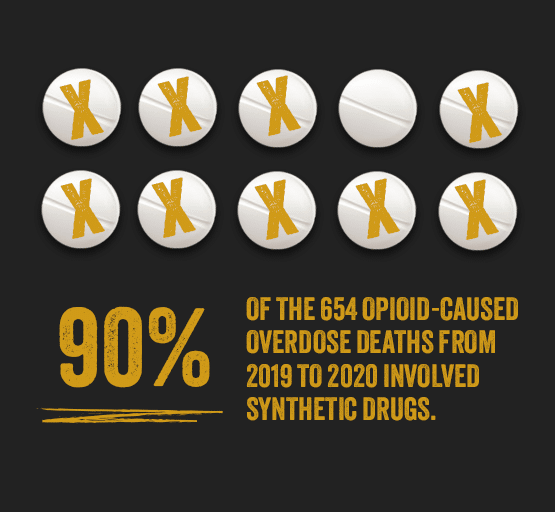An opioid overdose requires immediate medical attention. Call 911 immediately if you or someone you know exhibits any of the symptoms.

Source: MDH
The benefits of powerful opioids and synthetic (laboratory-made) opioids have long made a difference in medical care; from surgical anesthesia to post-surgical recovery, they help patients avoid unnecessary pain and discomfort. But today, counterfeit versions of these same drugs are fueling a surge in opioid addiction and accidental overdose. It’s never been more important to be informed.
Synthetic opioids can be produced as stimulants, depressants, or hallucinogens, and today, illegally manufactured opioids are most often cut with fentanyl. They can be made anywhere, typically in unsanitary environments with no oversight or quality control. Worse, no regulation means that even a single dose of a random pill can be lethal.
Over 150 people die every day from overdoses related to synthetic opioids like fentanyl. In 2021, the number of deaths caused by drug overdoses increased by 29% compared to the previous year.
When it comes to substance abuse, synthetic opioids pose serious concerns. Yet that’s just part of the picture.